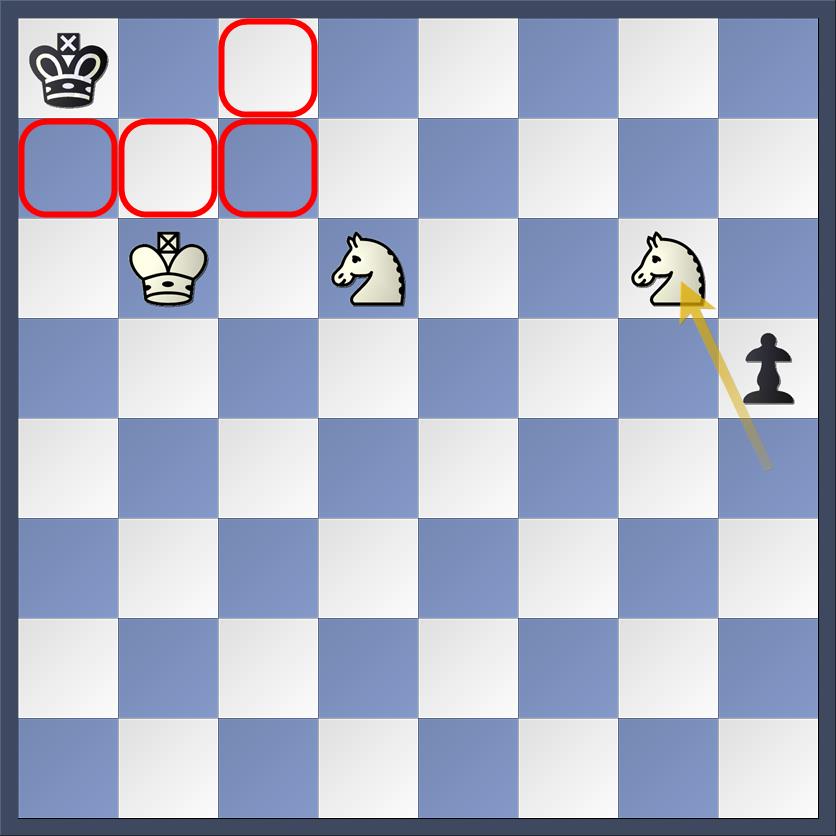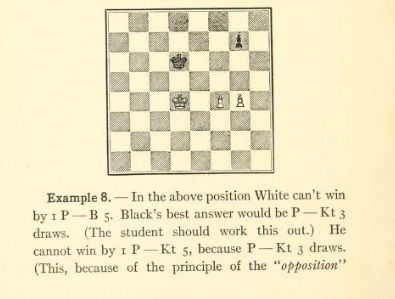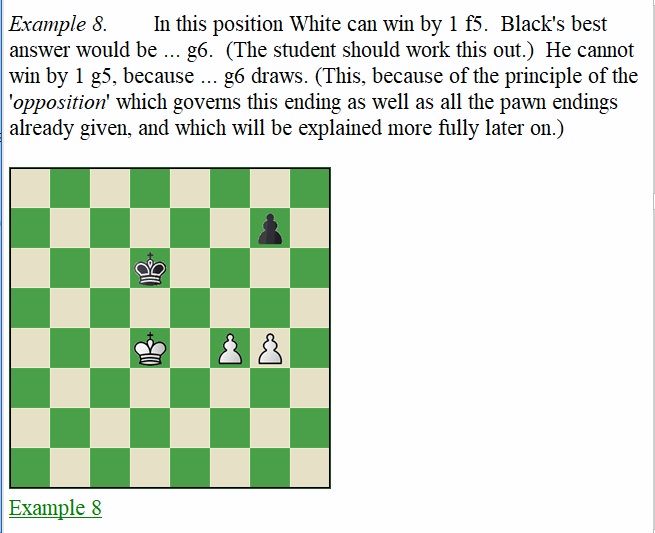WHEW! THATS A BORING BOOK!! HEHE
Chess Fundamentals by Capablanca

Just be sure you get a good edition - the 1994 Cadogan version is the best, as it's algebraic without alteration.
The latest version by de Firmian is an appalling hack job. He replaced many of Capa's games with his own!

Just be sure you get a good edition - the 1994 Cadogan version is the best, as it's algebraic without alteration.
The latest version by de Firmian is an appalling hack job. He replaced many of Capa's games with his own!
I followed your link thinking, "appalling hack job? that seems a little strong" -- after reading winter's remarks I think you were being nice. It's desecration. It's criminal.

Awright boys, gather round and get yer torches, we're going to De Firmian's place....

The version tha I have of this book is a little older and Chess Notation I don't understand. i.e. moves like " 2...K--B 1; 3 K-B 3, K-K 1; 4 K-K 4, K-Q 1; " Could anyone tell me what notation that is?

@VanCamplakopo - Descriptive chess notation. See here.

can anyone tell me where to get pdf version of its cadogan algebric version.. thanx in advance
You are asking for a copyright violation. You should be prosecuted.
You can buy at minimal cost an ebook version of the 1994 edition at https://everymanchess.com/products/chess-fundamentals?
Download the free ChessBase Reader and install the ebook there. Great book. Great software.

The non-copyrighted versions are in descriptive notation, but I have a free algebraic edition embedded in the e+chess reader on my iPad.
The copyright expires after 75 years. The algebraic edition was created in 1994.

The non-copyrighted versions are in descriptive notation, but I have a free algebraic edition embedded in the e+chess reader on my iPad.
The copyright expires after 75 years. The algebraic edition was created in 1994.
Then what you are stating is if we steal someone else's material, change the notation, we can then get our own copyright over that stolen material. How is that any better?
It is not better. It is legal. I think if you add some value, such as translating an old form of notation to algebraic, then you have an assertable right.
Ebook Scam
While working on a post, "Advice for Beginners", I came across a new twist on a scam I had noted briefly nearly four years ago. In "Kindle Chess Books", I observed that there was a large number of Kindle books by many different pretend authors that were in fact books by Edward Lasker and Jose Capablanca, repackaged with someone else's name on the cover.
I had a hand in getting several of these books removed from the Kindle Store by reporting them as fraudulent to Amazon. My review, "Fraudulent", of Chess Fundamentals by Bennett Griffin is still on Amazon, but the book is not. Several reviews of rip-offs of Lasker's Chess Strategy are still available, too.
This afternoon, I found that there are no less than one dozen copies of Chess Fundamentals by Jose R. Capablanca available in Kindle editions. All of these present Capablanca as the author, mostly concealing the identity of the person(s) selling them as Kindle editions. Three of these are in algebraic notation. The other nine are principally copy and paste rip-offs of the original American edition (1934) that is available through Project Gutenberg. They range in price from $0.99 to $5.98.
A few of them reveal minimal effort on the part of whoever uploaded them to Amazon. Two are without diagrams, including the most expensive one. One of the algebraic editions appears from Amazon's preview to have pasted text boxes with algebraic notation over the descriptive in the Project Gutenberg edition, and also replaced fuzzy black and white diagrams with nicer ones. It has the largest diagrams of the three algebraic offerings. The clearest diagrams, however, are in a different algebraic version, and also the smallest.
Converting this classic text to algebraic and publishing it as an ebook is real labor, and deserves compensation. However, judging from the reviews, they may contain many errors. At least one of the algebraic editions is also available as an independently published print edition.
See the rest at http://chessskill.blogspot.com/2021/01/ebook-scam.html

Does the algebraic notation book actually provide anything else other than Capablanca's words?
See posts #3 and #4. Nick De Firmian added content that was not Capablanca's and he was condemned for it. When one is updating a classic to modern notation, preserving the language of the original is preferable.
The 1994 Cadogan (now Everyman) edition is faithful to Capablanca, but they correct an error that Capablanca made. Respecting his words, while translating the notation is real labor and offers real value. I bought both the paperback and ebook versions of the Everyman version. The ebook version also highlights squares.
It was first published in 1994 and has become hard to get. So far as I can see, it is the only edition worth getting unless you want descriptive. I also have the 1934 edition in hardback. I've read it several times. But, I learned descriptive notation half a century ago. I was in my 30s before I learned algebraic, which I now prefer.

However, Amazon's algorithm fails with Capablanca's books. That screenshot is from a page that says they have one copy. They had three when I bought it January 31. The one that arrived has a different cover, but is the same book. The "See all formats and editions" link takes you to two of the bogus editions, both in descriptive notation.

@Ziryab Thank you for being conscientious of copyright law and authors' rights!
How do we know that, is Capablanca's estate getting royalties?
As someone who's had their books stolen, I'm simply expressing my gratitude to someone who is cognizant of copyright and an author's right to their own work.

Copyright protects more than royalties. It also protects the integrity of the content. That way, it protects consumers, too.
Today, it is so easy to write and to publish (social media, self-published books, etc.) that the noise of bad information often seems to drown out good information. This is true in the news we consume, and it is true in the publication of quality chess books.
I do recall that Capablanca's estate renewed his copyright in the 1980s or thereabouts. That does not keep the original 1921 edition off Project Gutenberg and the Internet Archive, however.

@HumptyTHEhPawn
Have you ever gone through a book in descriptive and tried to convert all notation to algebraic?
As for correcting Capablanca's error:
From the 1921 edition of Chess Fundamentals.
From the ebook version of the 1994 algebraic edition.


@HumptyTHEhPawn wrote, "If you sell a crappy kindle version of a book for $3 to 10 people, you get $30. You don't have to market a quality $30 book."
Nope.
The author of a $3.00 self-published Kindle book earns about $0.90 per copy. Writers who use regular publishers get a lower percentage. When you suggest that authors cite their sources, you are describing the world of scholarship. There the royalties are even smaller, the print runs are small, and the books cost any where from $50 to $200. I recall when a friend of mine has a moderately good year with an academic book he spent years writing. With his annual royalty check, he bought a good bottle of Bordeaux.
Of course, academics don't publish for money. There is no was someone would spend that much time producing something of value to so few people if the rewards were economic. Their work is the production of knowledge.
I might add that while I find a lot of value in Kasparov's books, especially his My Great Predecessors series, that is a strange example after mentioning citation of sources. The entire series is more than 50% quotation, while only the fifth volume even has so much as a bibliography. He earned a lot of criticism for his failure to cite his sources.

Either I am being censored or I got punished for correcting a typo.
Weird. I assumed you were weary of the conversation and deleted your posts. Did you accidentally delete while editing? I noticed you are new to the site. The edit command is close to the delete.
Also, you have said nothing that would cause problems for moderators. Posts disappear when someone is banned from the site, usually because of cheating of egregious violations such as endlessly spamming the site with risque photos.

No, I edited my posts and as I submitted the typo corrections, it muted me. So, I suspect it was a bot and not a moderator. I guess I have to type shorter messages and make sure everything I type the first time is 100% correct, or else I will need to hire one of you guys to correct my mistakes and then sell those corrections to the readers.
It still seems unusual. I've written some very long posts. As long as you are not using profanity or posting obscene images, you should be okay.
Sometimes the site will crash. But, if it does that while you're editing a post, the unedited one should remain.
Shorter posts are better. You offered a lot of arguments with things I wrote in the deleted posts. Too many at once for me to take in interest in responding.
I've gone through and culled comments from my posts that no longer make sense in the absence of the context.

@Ziryab Thank you for being conscientious of copyright law and authors' rights!
How do we know that, is Capablanca's estate getting royalties?
As someone who's had their books stolen, I'm simply expressing my gratitude to someone who is cognizant of copyright and an author's right to their own work.
I've written things for websites and even print publications and then found them on the web someplace else entirely. There are also lots of websites that simply copy Wikipedia and put their own frame around it.




The first chess book I ever read was Playing Winning Chess by Seirawan which was good. I just recently started reading Chess Fundamentals by Capablanca. I have only read the first two pages so far and have learned more than Playing Winning Chess. I recommend this book to everyone.